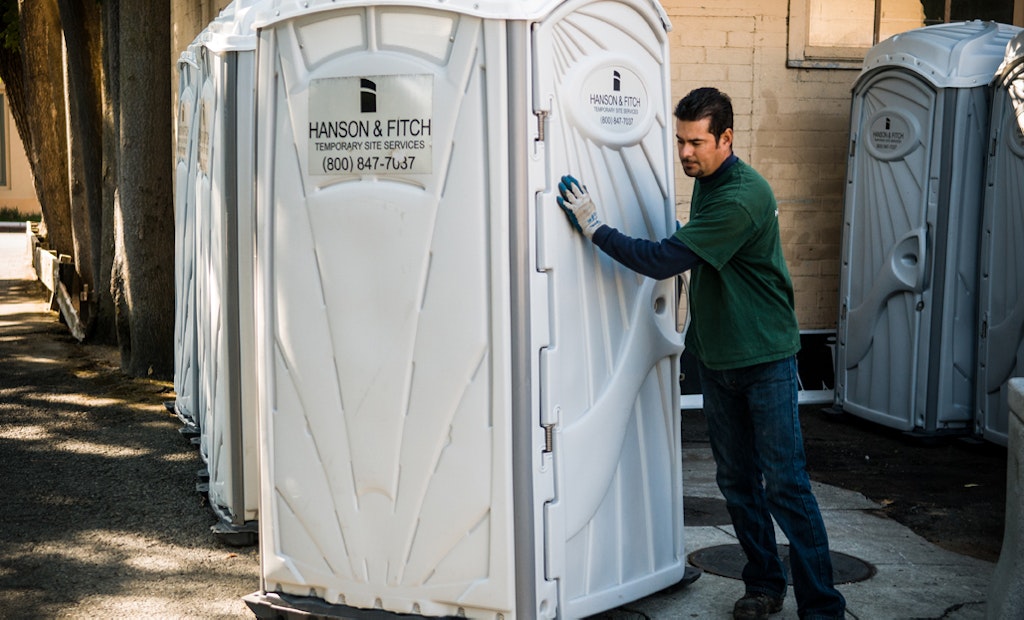Interested in Portable Sanitation?
Get Portable Sanitation articles, news and videos right in your inbox! Sign up now.
Portable Sanitation + Get AlertsOne of the biggest determinants of your profitability is what you charge. Too much, you lose the work; too little, you lose money. Every portable restroom operator has to walk that fine line.
Bruce Francisco of Busy Bee Septic Systems, Ltd. in Pikeville, Ky., has had a couple decades to think about those logistics since adding portable restrooms to his septic business about 23 years ago. He shares some thoughts on the subject.
Basic philosophy
At its simplest, you figure out your direct expenses (such as chemicals, paper and fuel), add in a percentage amount to help cover overhead (rent, salaries, phones), then tack on some hoped-for profit. This might work if you had no competition and customers weren’t trying to pay the least amount possible. So you often end up adjusting, finding ways to reduce costs, sacrificing some profit.
But Francisco says you can only tweak so much, and he doesn’t even attempt to be the lowest-priced vendor. “We’re on the high range of pricing in our area,” he says. “We want to be able to cover our costs and provide a living wage for our people.”
His company has two separate charges – delivery and service. The delivery fee includes pickup, and if all the units can be taken in one load the price is the same whether it’s one unit or several. It’s also the same whether it’s a one-day event or a long-term situation since the time and effort is the same. The service charge is roughly based on number of units, although, again, it doesn’t cost much more to clean four units than one. Service is charged as a monthly fee in the case of construction work or a daily fee for special events.
Cutthroat price wars
Occasionally a new company comes into the market and offers unusually low initial prices in an attempt to lure away your customers. Should you panic and lower your rates or stick to your guns? Francisco’s advice: “As they say, just suck it up and let it go. I don’t try and match it.” He figures this low-ball approach is not sustainable and it’s only a matter of time before the company will either go under or raise its rates.
When he attends the Pumper & Cleaner Environmental Expo International, Francisco talks to other companies around the country about costs and prices so he knows what the general going rates are in the industry.
Price is not the only issue
There will always be customers whose only objective is low price but others are willing to pay a premium for peace of mind. The way to stand out from the crowd is the same in any business – service, trust and reliability. If you do what you say you’re going to do and customers believe you’re honest and fair with them, they won’t quibble over small differences in price.
Customers are more likely to go with the lowest bidder in situations where they don’t know the vendors. But if they know one has a great reputation, that vendor will have an edge. Longevity in the business helps with that, Francisco says, as does participating in community activities and civic organizations where people can get to know you.
Surcharges
Extra service warrants extra charges. But it doesn’t always work out, Francisco says. If you know in advance you’re going to have extra costs – long distance travel or rough slow-going terrain, for example – you can build it into your rates.
“We also stipulate in the contract that if they need extra service, we’ll charge them accordingly,” he says. But when it comes to something like graffiti or vandalism, sometimes you just end up eating it, he says. “You can charge all you want. Getting paid for it is a different thing. It’s just part of the risk in the business.”
Making a living
It’s an unusual line of work to be in, Francisco says – and very competitive. But in the end, this is your livelihood, you’re in it to make money, and you can’t under-value your service.






